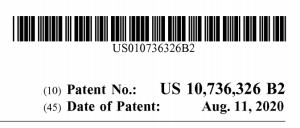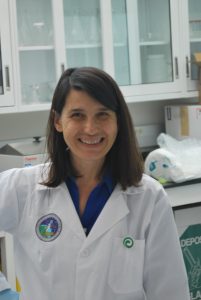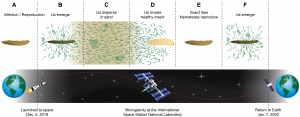Nematode Pheromone Extract Dramatically Increases Efficacy of Nematode Dispersal for Crop Biocontrol
DAVIS, California – August 24, 2020– Pheronym, an Ag-biotech pest control company, has been granted its patent for its breakthrough in creating a way to increase the effectiveness of Nematodes’ ability to control pest insects, naturally, in agriculture. The patent is listed as “Nematode dispersant composition and method” and is US patent number: US 10,736,326 B2.”


While nematodes (microscopic roundworms) are regularly used in pest control, commercially available nematodes do not disperse as well as they could when they are applied to a field. This is because they have lost their pheromone signal to hunt for new prey. Since the insect target is mobile, the nematodes need to be actively moving and hunting for a new insect host. Pheronym’s patent directly impacts this problem – significantly improving the mobility and aggressiveness of the nematodes making them more effective in killing pests. It also expands their effective temperature range.

“It’s great to have additional validation on our breakthrough,” said Dr. Fatma Kaplan, CEO of Pheronym. “The recognition of our IP along with four peer-reviewed studies on its effectiveness bring us another step closer to broad commercialization of this natural approach to pest control that will be better for people and our planet. ”




